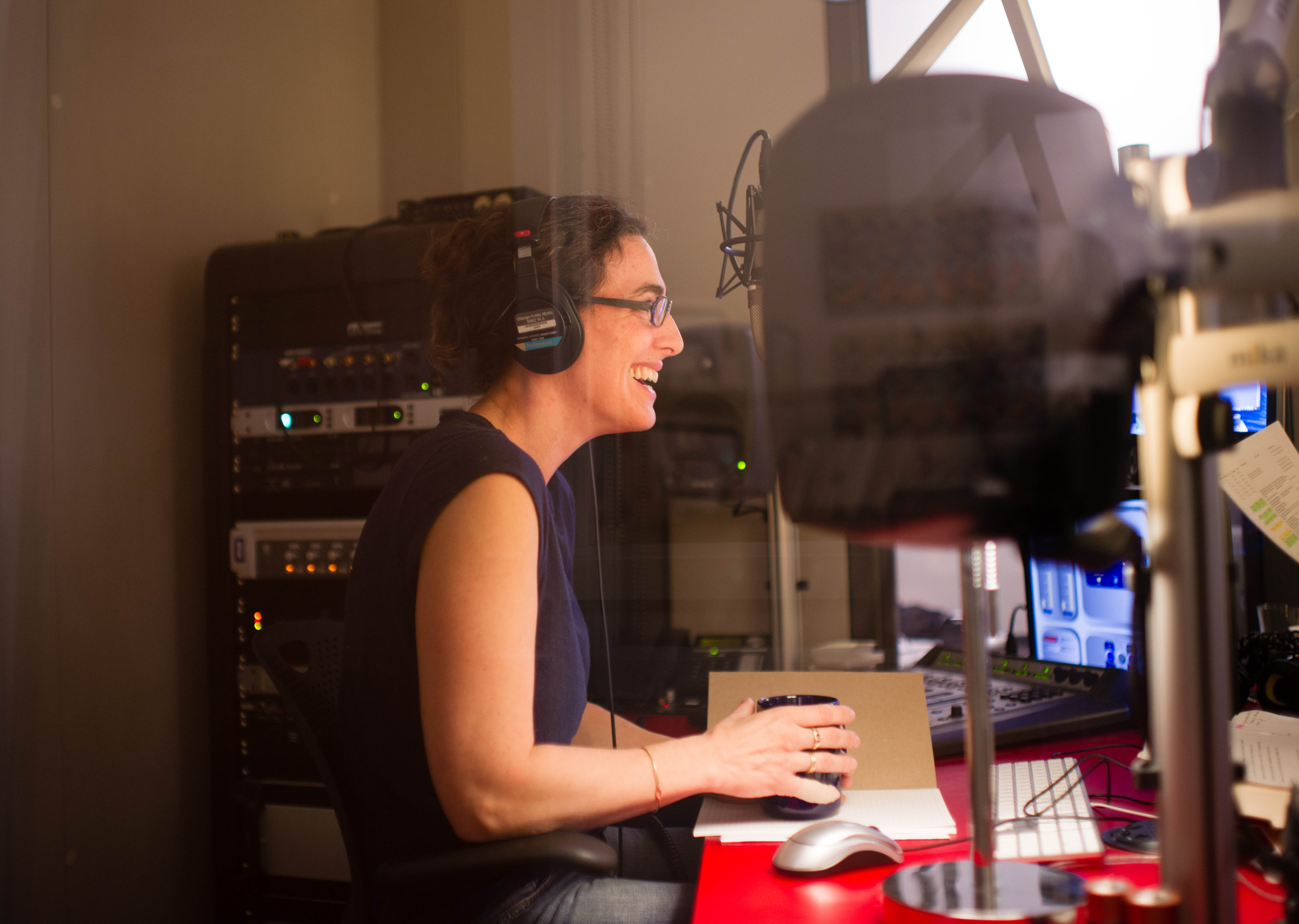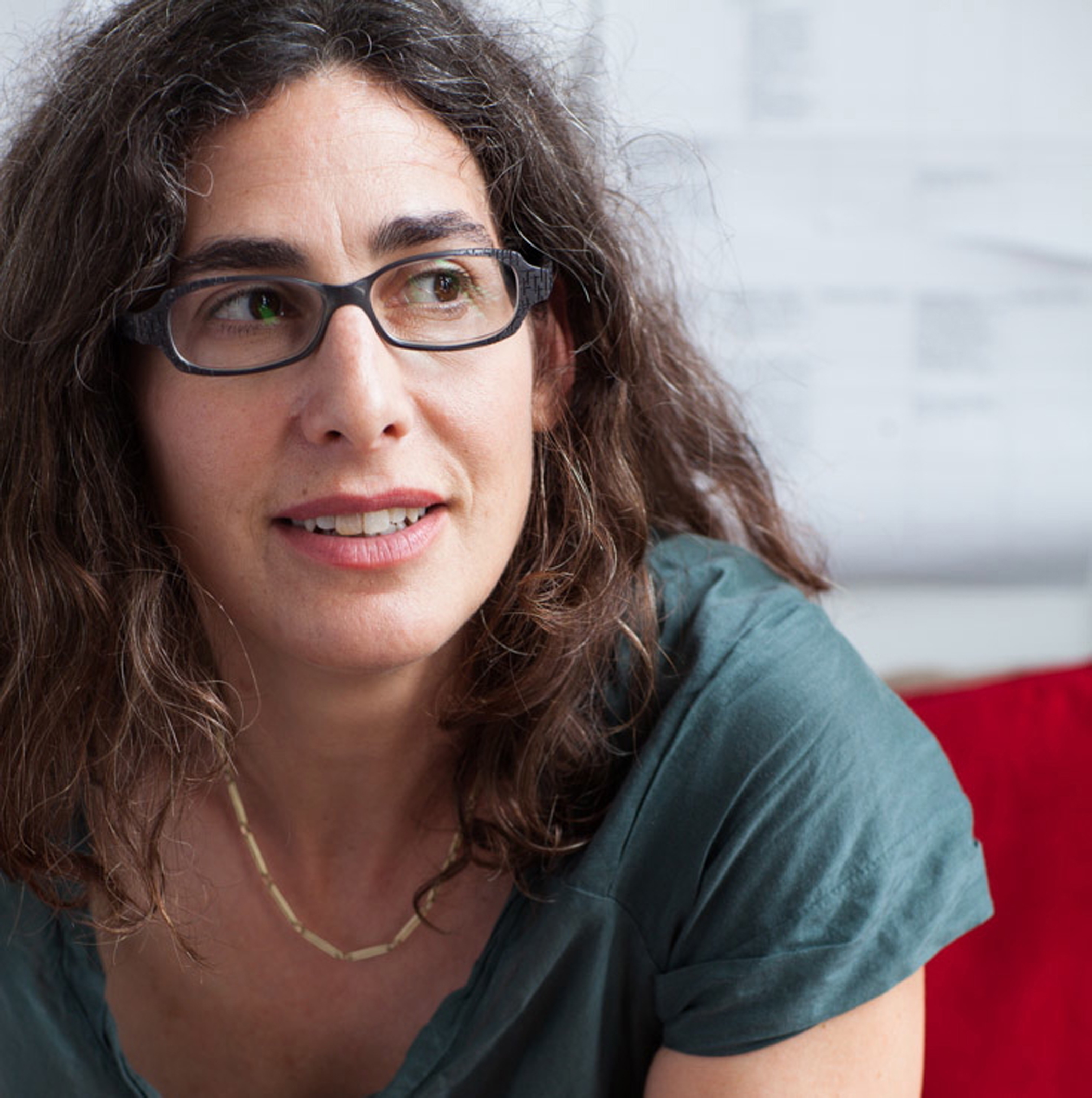
Sarah Koenig, co-creator of the popular storytelling podcast Serial, will return to Chicago Thursday, not to her alma mater the University of Chicago, but to speak at Northwestern as part of the Contemporary Thought Speaker Series. NBN talked to Koenig over the phone before her visit about the process of creating Serial, what advice she has for student journalists and how often people ask if Adnan really did it.
NBN: You didn’t study journalism in college, but when you were just starting out as a journalist, what would you have thought of being a public figure from a podcast, and of audio journalism?
Sarah Koenig: Well, I wouldn’t have thought about it because I didn’t know it existed, because when I was young it did not. Like there was no such thing as a podcast.
And I didn’t even really know what public radio was growing up. I mean, we were not a family that listened to the radio ever. It didn’t exist in my head at all. So yeah, it’s sort of impossible to imagine because it wasn’t a thing.
NBN: What advice would you give to aspiring journalists who are interested in doing podcasts or audio journalism once they graduate?
SK: I would say know that it’s hard. Not in a discouraging way, but know that it’s no different from any medium in that it takes certain skills and it takes a long time to develop those skills, and so not to be discouraged if the thing that you’re imagining in your head doesn’t quite match the thing you’ve actually made.
I think people think that making this stuff is just like a snap, or some people will ask me, do you write down what you’re going to say? I’m like God, if you only knew. Every word, every pause, every period is scripted. This is hard work.
Know that it’s a challenge but also that it’s sort of a great challenge because it’s so open still. Like you can do anything, anything that interests you. You can make it into something interesting. That’s really cool, I think, about podcasting, where there still aren’t any rules about what you can and can’t do. And that’s really exciting to me about this whole world. And I hope that doesn’t go away. Sometimes as things get more popular they kind of harden into an expected format, and I’m hoping that doesn’t happen, at least not too soon.
NBN: Do you consider Serial to be the most important or meaningful story you’ve worked on in your career, or are there others that are up there?
SK: I’m really proud of both [seasons] and I think both of them point to and look closely at systems in our country that really, really need looking that. So in that way, I think they’re important. But I’ve done lots of other stories that I feel are also super important. They didn’t get nearly as much notice, but I’ve worked on stories about Guantanamo Bay that I thought were super interesting or stories about terrorism that I thought were important. As a print reporter, I covered the death penalty a lot. I mean all of us, as reporters, try to work on stories that we care about. That’s kinda the goal. I think maybe what you’re getting at is that popularity tends to be equated with importance, and I don’t believe that at all. Just because it has a bigger audience doesn’t mean it’s a more important story, obviously.
NBN: What is it like to do one season being able to talk to the subject, and another where you could only use his interviews with other people?
SK: I did talk to Bowe a bit, just not on tape or anything, and not in an interview way, so I did have some contact with him; it was just very limited. At first I was very worried about it.
You have to really care and really be invested, not just so your audience cares but also just for yourself. And I worried, 'How am I going to get there if I don’t really know this person?' And 'Who am I to this story if I don’t have a connection with Bowe?' I have to say, I pretty quickly got over it and forgot about that thing because first of all, I interviewed so, so many people, other people, about what happened. Not only people close to Bowe, but also just other soldiers and people at the State Department. And they became to me as much of the story as Bowe.
Listening to Bowe talking or reading the transcripts of Bowe talking, I don’t know, at a certain point I sort of forgot it wasn’t me. It was Mark Boal. Mark is a good reporter and he was interested in a lot of the things that I was interested in, he was asking the same questions I would have been asking. They had a very interesting rapport. I don’t know, to me it was like I got it, I feel like I’m getting to know this person anyway.
NBN: Is it hard to be as removed from the story as you need to be to tell it fairly? Is it hard when it seems critical of someone you’ve gotten close with?
SK: Yeah, it is difficult. I’ve had that experience in other stories I’ve worked on, too. I mean, if you’re a beat reporter and you’re covering something over time, there are sources who you care about and you get to know them a little bit and you don’t want to disappoint them. Or you know it happens in our work all the time.
I think we don’t talk about it very much as reporters because we’re supposed to be all hard-nosed and tough, and, you know, all facts and nothing to do with emotions. But that’s fake. I think that’s fake for all of us.
The danger is [if] you don’t ask the hard questions, or you don’t follow avenues of reporting that could turn out to make somebody look bad. But the hard part is doing it anyway. And we did. We always did. There were I can’t tell you how many horrible and awkward conversations with all kinds of sources where I would have to say, ‘I’m gonna ask you about this,’ or ‘Look, I found out about something and I need you to respond to it.’ And yeah, it’s uncomfortable, but this work is uncomfortable. So those conversations aren’t always fun but they’re totally necessary.
And I have to say, I worked really closely with the other people at Serial, you know, principally Julia Snyder and Dana Chivvis, and that really helped me have perspective on that stuff. You have colleagues who kind of hold the mirror to your own bias as well, so that you’re able to address it and correct it and think it through.

NBN: What’s it like working on a story for months on end, and what’s the day to day look like?
SK: It’s not not interesting every day. It is interesting every day. It’s stressful. I mean the way that we made season one and two, I wouldn’t say it’s a sustainable model, let’s put it that way. It was brutally exhausting in a way that I think we can’t do again. A ton of it is just organizing, organizing, organizing and figuring out what you have.
With Adnan’s case we had a ton of material. We had a ton of documentation right from the get go. And so we kind of knew the world of documentation that we were working with and it didn’t really go beyond that. With Bowe’s case though, there was so much stuff out there. It was sort of a massive research job that really I was only partly doing; mostly it was my colleagues doing it. And that was hard. A ton of research, probably as much research as it was actual interviews.
It’s exhausting. It’s exhausting to be reporting and making the episodes at the same time. I didn’t see my kids for probably five months really. I mean, you know, literally I saw them, but I was like elsewhere in my head all the time.
NBN: Do you have any other podcasts you like to listen to?
SK: I don’t listen to very many just because I don’t have that much time. In some ways I wish I had a longer walk to my office or something so I could listen to more, because that’s when I tend to listen: when I’m walking to and from my office. But I listen to my colleague Alex Blumberg, he has some podcasts. Gimlet Media, you know, is putting out some, so I’m listening to some of his. I listen to Radiolab sometimes, I listen to The Moth, I listen to Fresh Air a lot.
NBN: How often do you get asked about your real opinions about season one – how often do you get asked if you think Adnan did it?
SK: I would say I get asked that question 68 percent of the time. That’ll be my percentage. It’s funny, I Skyped in with this class of middle and high school students recently who had studied season one of Serial, and I spent an hour with them on Skype answering their questions, and yeah, 80 percent of the questions were some variant of ‘Who do you think did it?’
NBN: Like, we’re gonna get you to say it!
SK: You guys, kudos to you for trying persistently, but I really don’t have more to say on this.
NBN: Yeah, you did a whole season about it.
SK: Pretty much, I’ve said what I need to say. I think people think that in my heart of hearts I have a different answer, and I’m telling you, I’m telling you I do not have a different answer. I’m not closer or farther from an answer than I was on December 18, 2014, or whenever it is that we edited season one. There’s not been new evidence that I’ve seen either way that changes where I sit.
Edited for brevity and clarity.